|
The Film

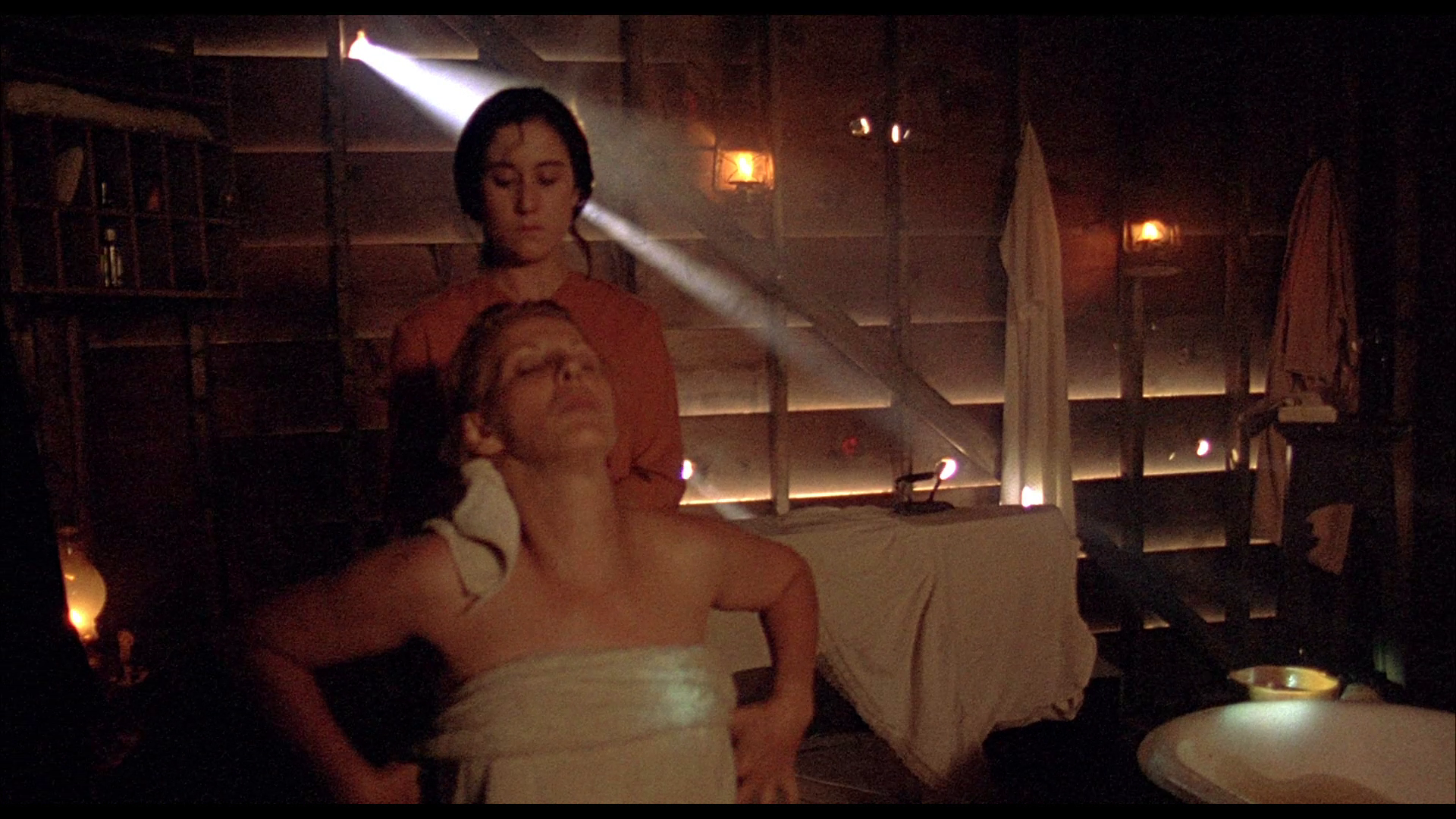 Like Water for Chocolate (Alfonso Arau, 1992) Like Water for Chocolate (Alfonso Arau, 1992)
Adapted from Laura Esquivel’s 1989 novel of the same title, Like Water for Chocolate (Como agua para chocolate) was directed by Esquivel’s then-husband, Alfonso Arau. The film, like the novel before it, focuses on Tita (Lumi Cavazos), a young woman whose love for Pedro (Marco Leonardi) is frustrated by Tita’s mother Elena (Regina Torne). Elena demands that Tita, as the youngest daughter within the family, must live a life of celibacy caring for her mother.
Pedro, who is also in love Tita, marries Tita’s sister Rosaura (Yareli Arizmendi) so as to be close to his true love. Tita, who has been mentored by the family’s cook, Nacha (Ada Carrasco), is given the responsibility of preparing the wedding feast, and discovers that the tears she cries whilst preparing the food have a magical effect, causing those who attend the wedding and eat the food to burst into tears over their lost loves. The connection between food and strong emotions is thus foregrounded.
Pedro and Rosaura have a child, Roberto. After the wet nurse is killed by a stray bullet (the film is set against a backdrop of the Mexican Revolution), Tita cares for the infant as if he were her own. Sustained by Tita’s food, and the love that is stored within it, the child is happy. However, Elena sends Roberto, Pedro and Rosaura to live with family in Texas; soon, news is sent to Elena and Tita that Roberto has died after being unable to digest the food that he was given to eat.
Devastated by this news, Tita has a breakdown of sorts and, in a near-catatonic state, is sent to live in Texas with a doctor, John Brown (Mario Ivan Martinez). Brown eventually falls in love with Tita and proposes to her. Tita, who is still in love with Pedro, must choose between remaining true to her lifelong love or accepting the devotion of Brown.
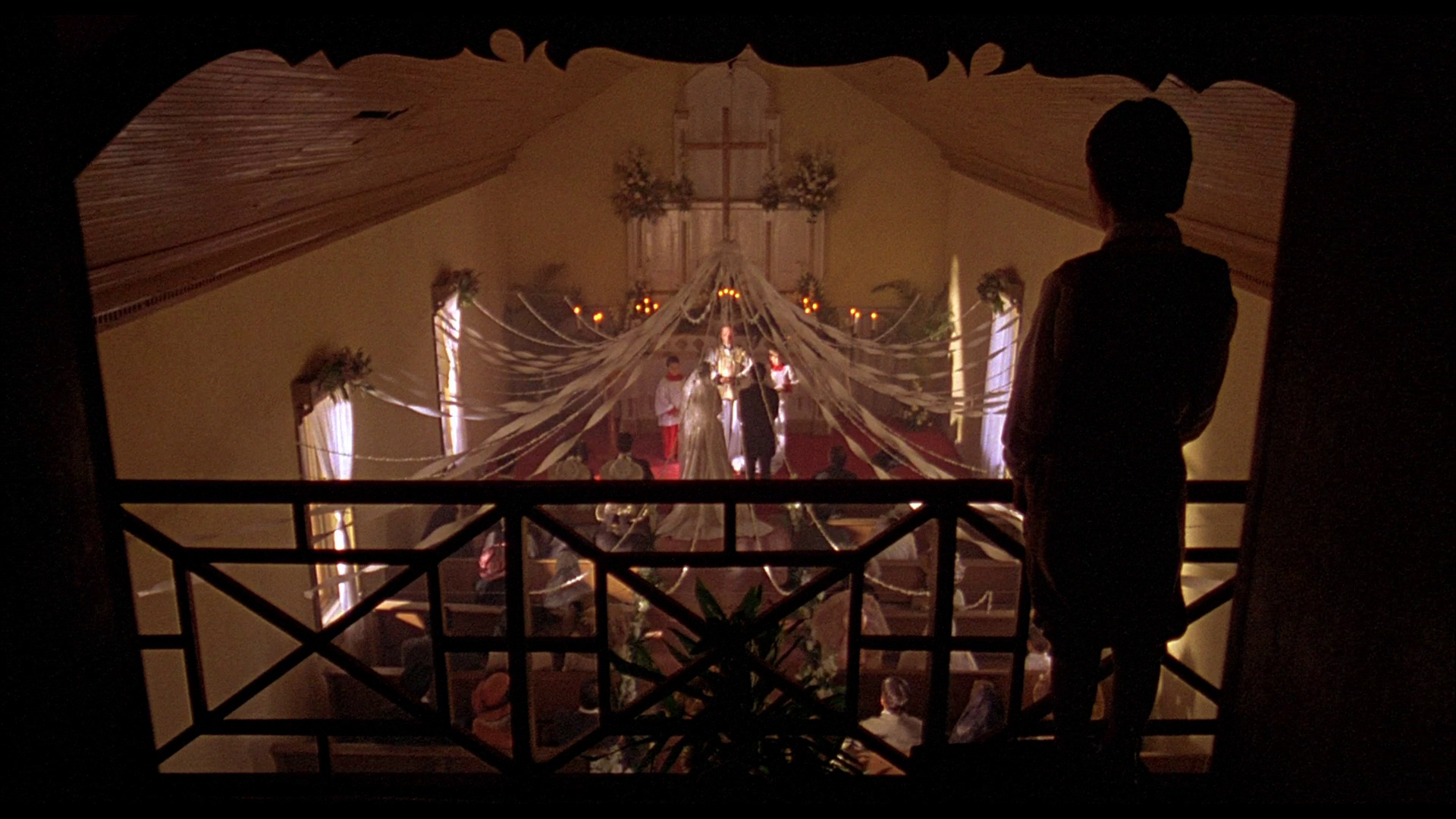 The film is a curious hybrid of a number of different genres. The primary focus is in the romantic aspect of Tita’s relationship with Pedro, which spans several decades. However, this is set against the backdrop of the Mexican Revolution, which takes the film into the realm of the revolutionary melodrama. One of Tita’s sisters, Gertrudis (Claudette Maillis), becomes so overcome with desire after eating a meal which Tita has prepared, and which has been made with rose petal sauce that has come from roses given to Tita by Pedro, that she rushes into the outside shower to cleanse herself of the aphrodisiac. However, as if drawn by the powerful odour of Gertrudis’ desire, one of Villa’s revolutionaries rides up to the shower on horseback and the naked Gertrudis hops onto his horse and rides away, escaping from her stultifying existence on the family ranch. Elena later states that she believes that Gertrudis has been abducted and forced to work in a brothel, but Gertrudis returns later in the narrative, revealing that she has now become a leader of the revolutionaries. The film is a curious hybrid of a number of different genres. The primary focus is in the romantic aspect of Tita’s relationship with Pedro, which spans several decades. However, this is set against the backdrop of the Mexican Revolution, which takes the film into the realm of the revolutionary melodrama. One of Tita’s sisters, Gertrudis (Claudette Maillis), becomes so overcome with desire after eating a meal which Tita has prepared, and which has been made with rose petal sauce that has come from roses given to Tita by Pedro, that she rushes into the outside shower to cleanse herself of the aphrodisiac. However, as if drawn by the powerful odour of Gertrudis’ desire, one of Villa’s revolutionaries rides up to the shower on horseback and the naked Gertrudis hops onto his horse and rides away, escaping from her stultifying existence on the family ranch. Elena later states that she believes that Gertrudis has been abducted and forced to work in a brothel, but Gertrudis returns later in the narrative, revealing that she has now become a leader of the revolutionaries.
In its use of food (or rather, the preparation and consumption of food) as a metaphor, Like Water for Chocolate has a relationship with a number of other films of the 1990s and early 2000s, including Lasse Hallström’s 2000 adaptation of Joanne Harris’ novel Chocolat. The structure of the film is interesting: where the novel is presented as a cookbook, the film begins in the present, with a young woman chopping onions. The problem, she says, isn’t that one cries when chopping onions but that one can sometimes never stop crying. She addresses the camera directly, breaking the ‘fourth wall’, telling us the story of the birth of her great grandmother, Tita, as the film cuts to a rural landscape accompanied by the onscreen title ‘RIO GRANDE, MEXICO, 1895’. The bulk of the film’s narrative takes place between 1910 and 1934, from Tita’s first meeting with Pedro onwards.
Like Water for Chocolate was a big success in the international market, paving the way for later ‘crossover’ films made in Mexico, such as Amores Perros (Alejandro González Iñárritu, 2000) and Y Tu Mamá También (Alfonso Cuarón, 2001) – not to mention Robert Rodriguez’s El Mariachi (1992). (Rodriguez worked as a production assistant on Like Water for Chocolate.)
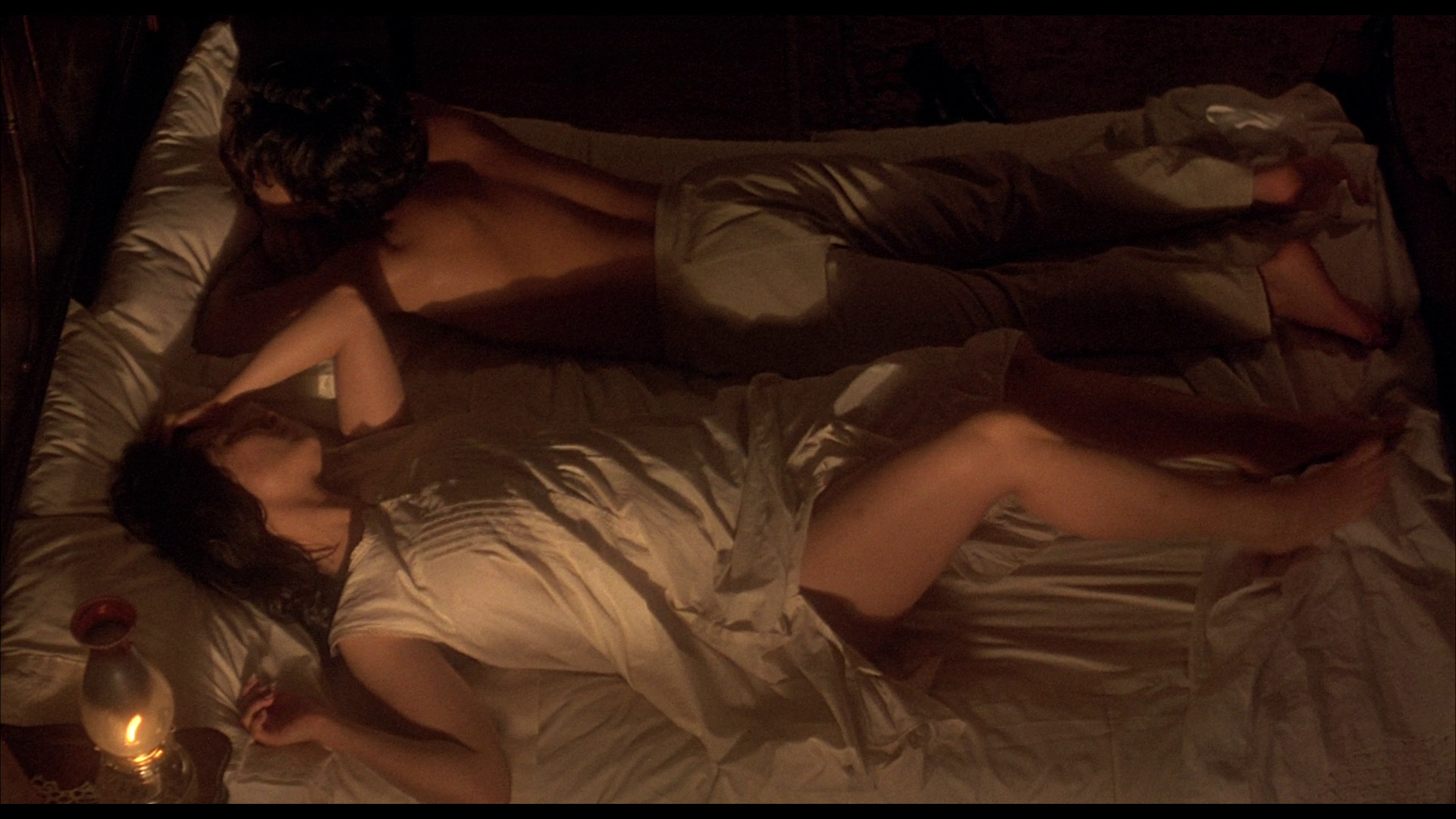 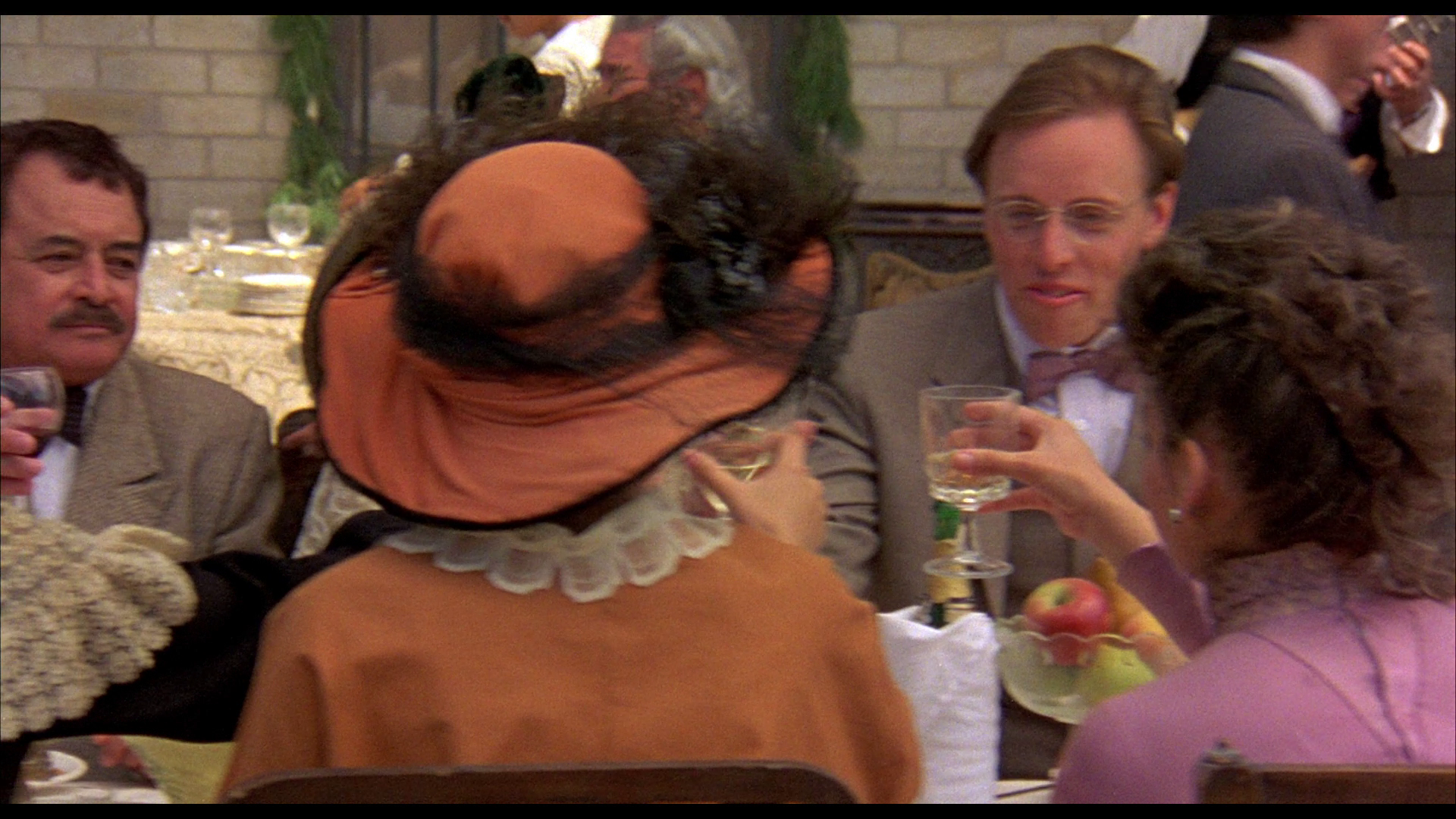
The film is uncut and, presented in the version prepared for international release, runs for 105:24 mins. (The cut of the film shown in Mexican cinemas was slightly longer, running for 114 minutes, and the director’s preferred cut is said to run for 144 minutes.)
Video
Like Water for Chocolate is presented on a single-layered Blu-ray disc, taking up approximately 19Gb of space. The film is presented in the 1.85:1 aspect ratio, which would seem to be its intended aspect ratio. The 1080p presentation uses the AVC codec.
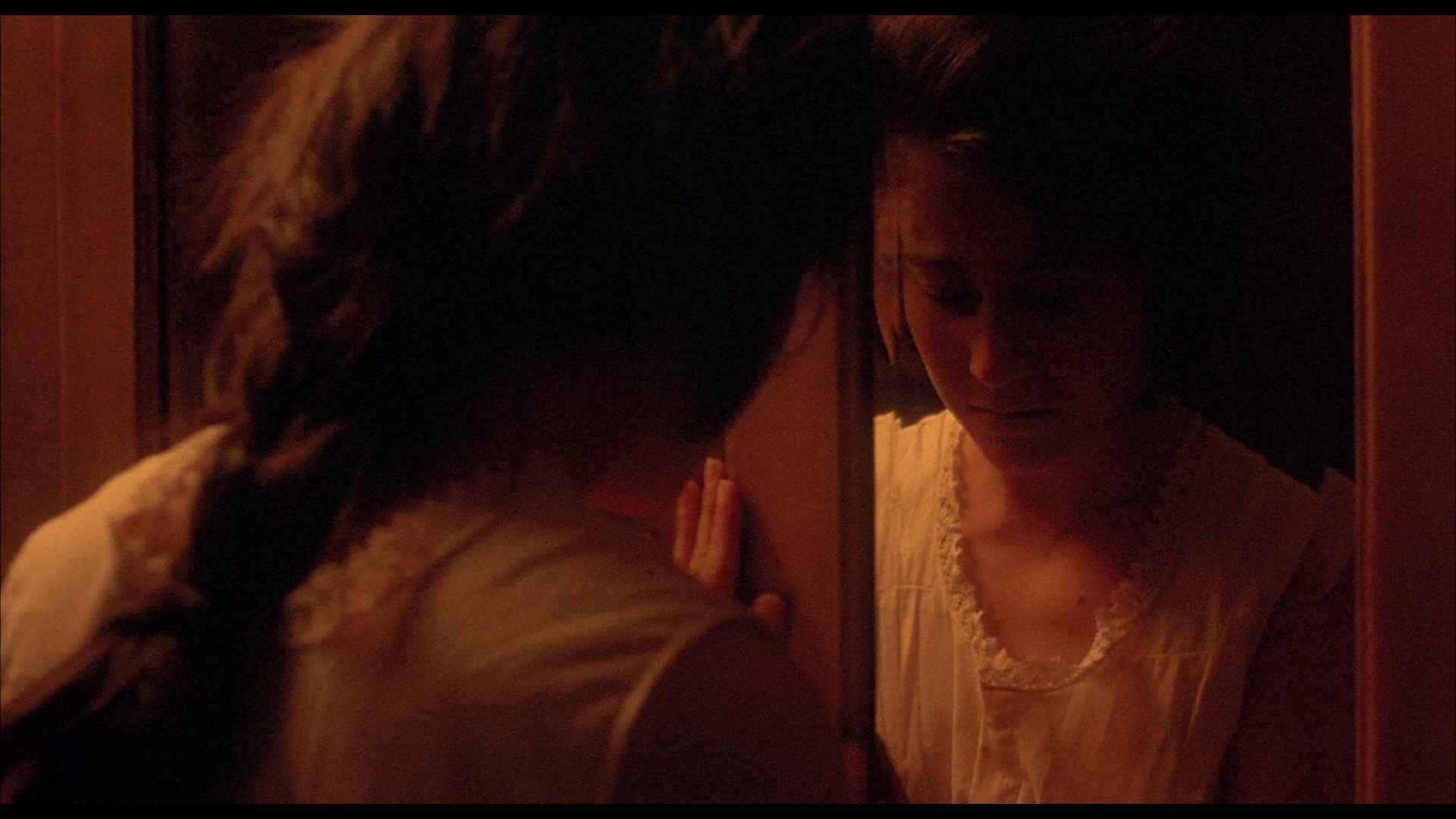 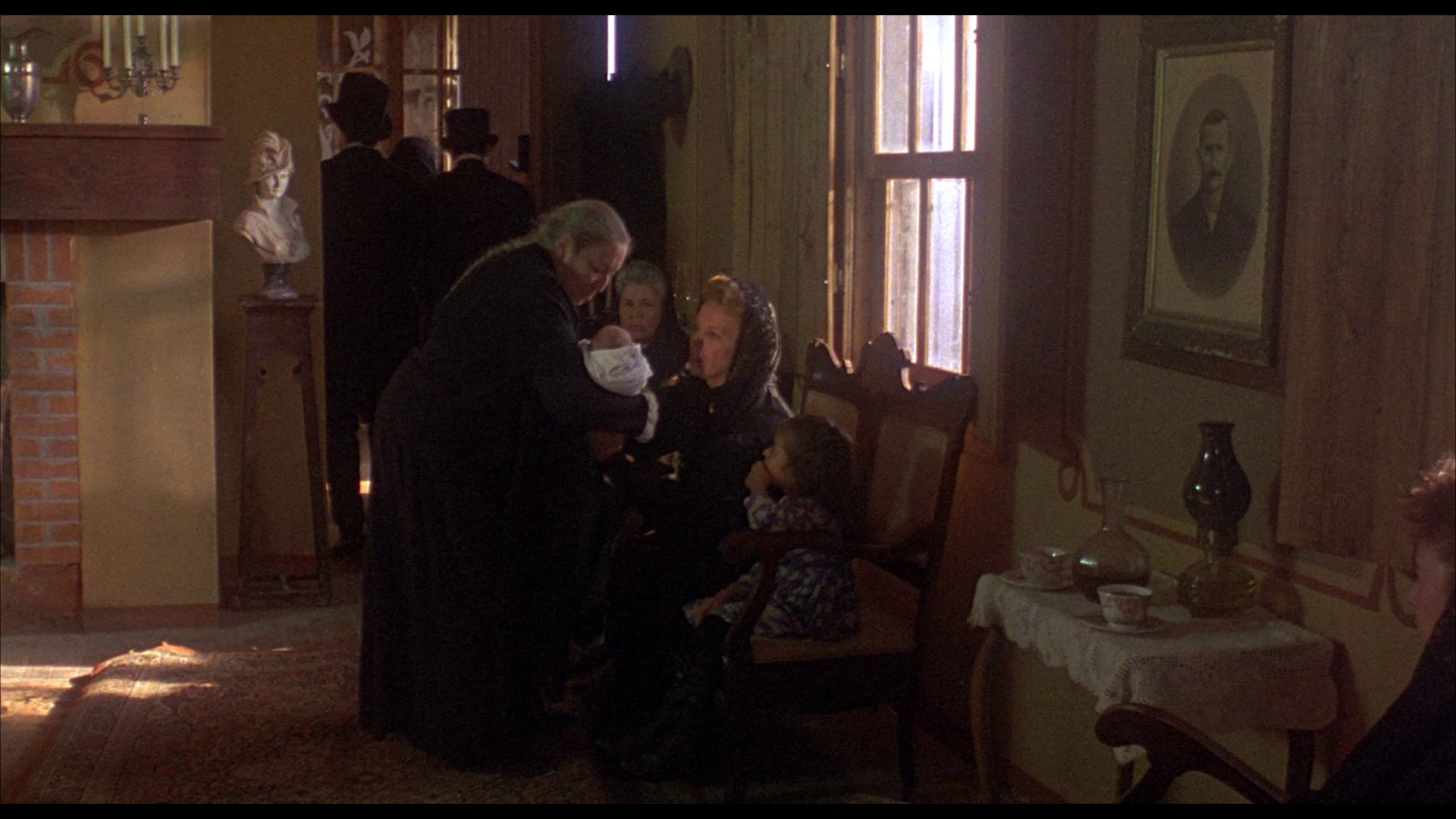
The image is clear and detailed, rich in texture. The painterly compositions, and the vibrant use of colour, benefit from the HD presentation, making this Blu-ray disc a clear improvement over previous DVD releases. There’s no overt evidence of digital sharpening or noise reduction.
Audio
There are two audio options: a DTS-HD Master Audio 5.1 mix and a LPCM 2.0 stereo track. The latter is more true to the original presentation, but the newer 5.1 mix is suitably atmospheric and doesn’t work against the film. Both tracks are clean and clear; the 5.1 mix offers a richer soundscape (listen to the swelling score in the opening titles sequence, for example). Dialogue is predominantly in Mexican Spanish, with some sequences in English. Optional English subtitles are provided for the Spanish dialogue.
Extras
The disc includes a commentary by director Alfonso Arau, with actors Lumi Cavazos and Marco Leonardi. This commentary is in Mexican Spanish with optional English subtitles. It’s an interesting commentary that balances discussion of the film’s themes with reflection on its production.
Overall
A particularly beautifully shot film, dominated by a painterly use of light, colour and composition (see the large screen grabs below for examples), Like Water for Chocolate was in many ways a watershed for Mexican cinema – or rather, for its relationship with audiences outside Mexico. Over twenty years later, the film retains its boldness of technique, feeling fresh in terms of its approach to structure and the directness of the narrative techniques on display. There’s a complexity of theme here and the film resists being pigeon-holed. It’s an impressive picture and this Blu-ray release, whilst light on contextual material (a retrospective documentary would have been nice), is a pleasing release of the ‘international’ cut of the film.
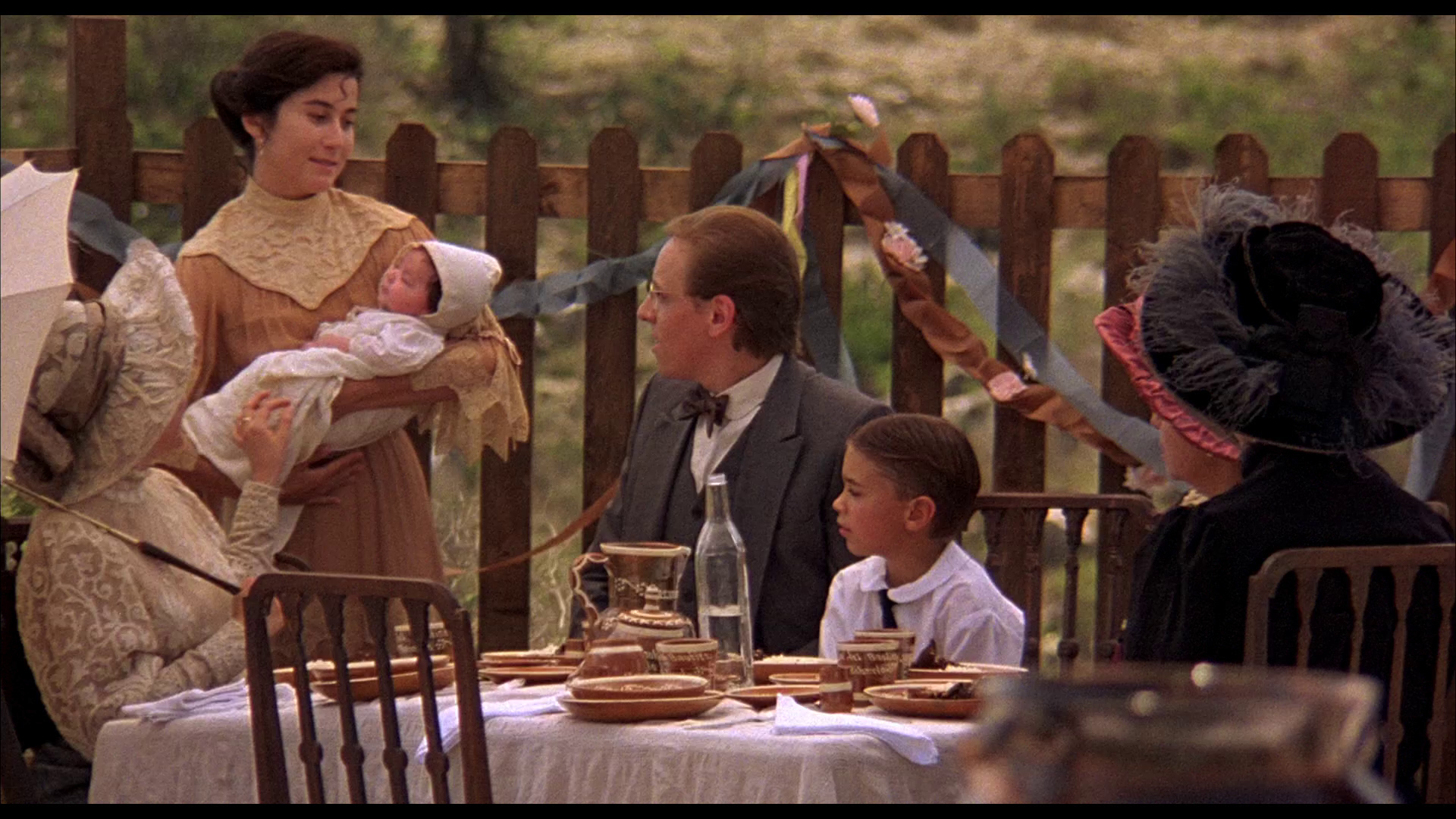
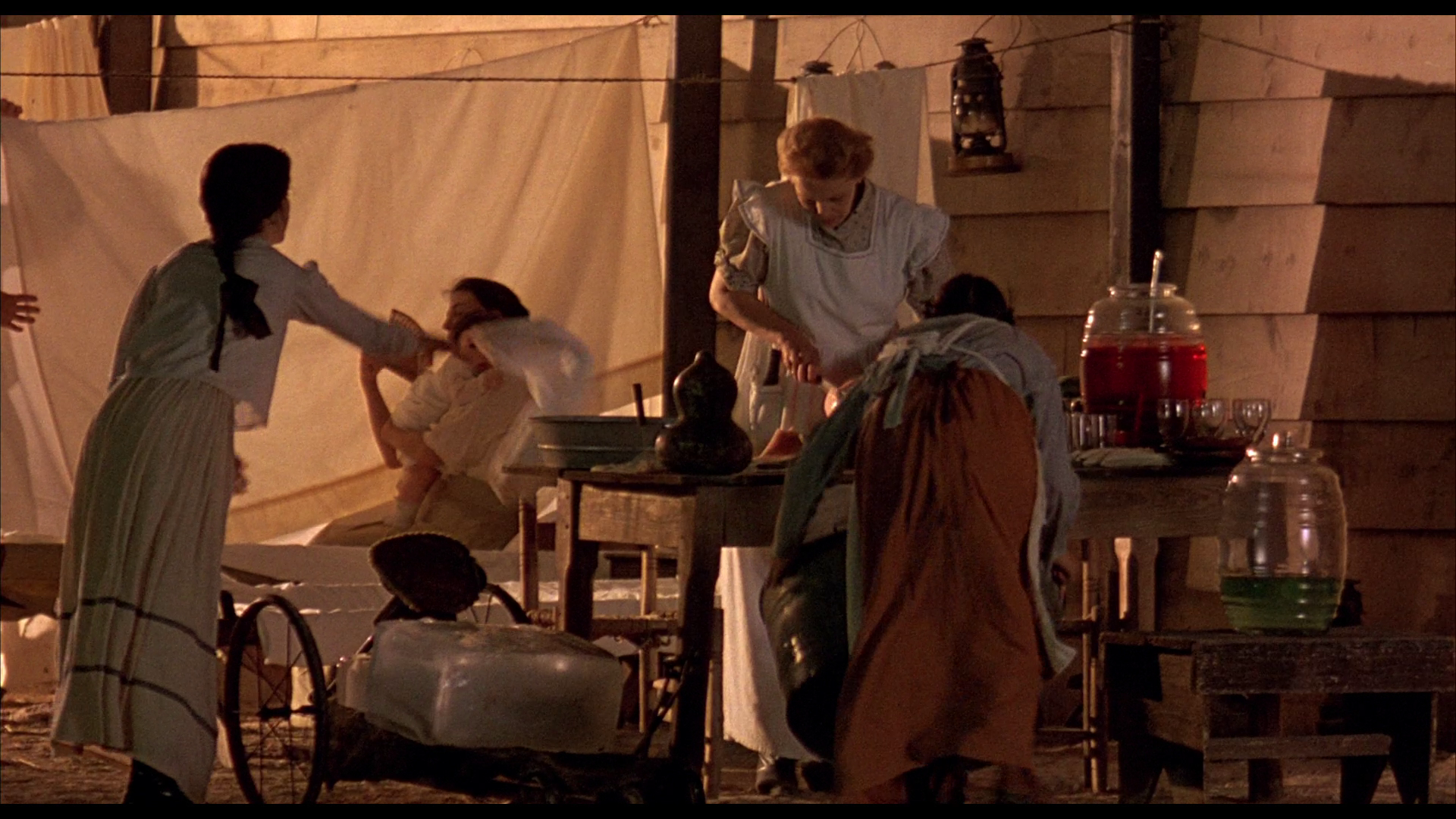
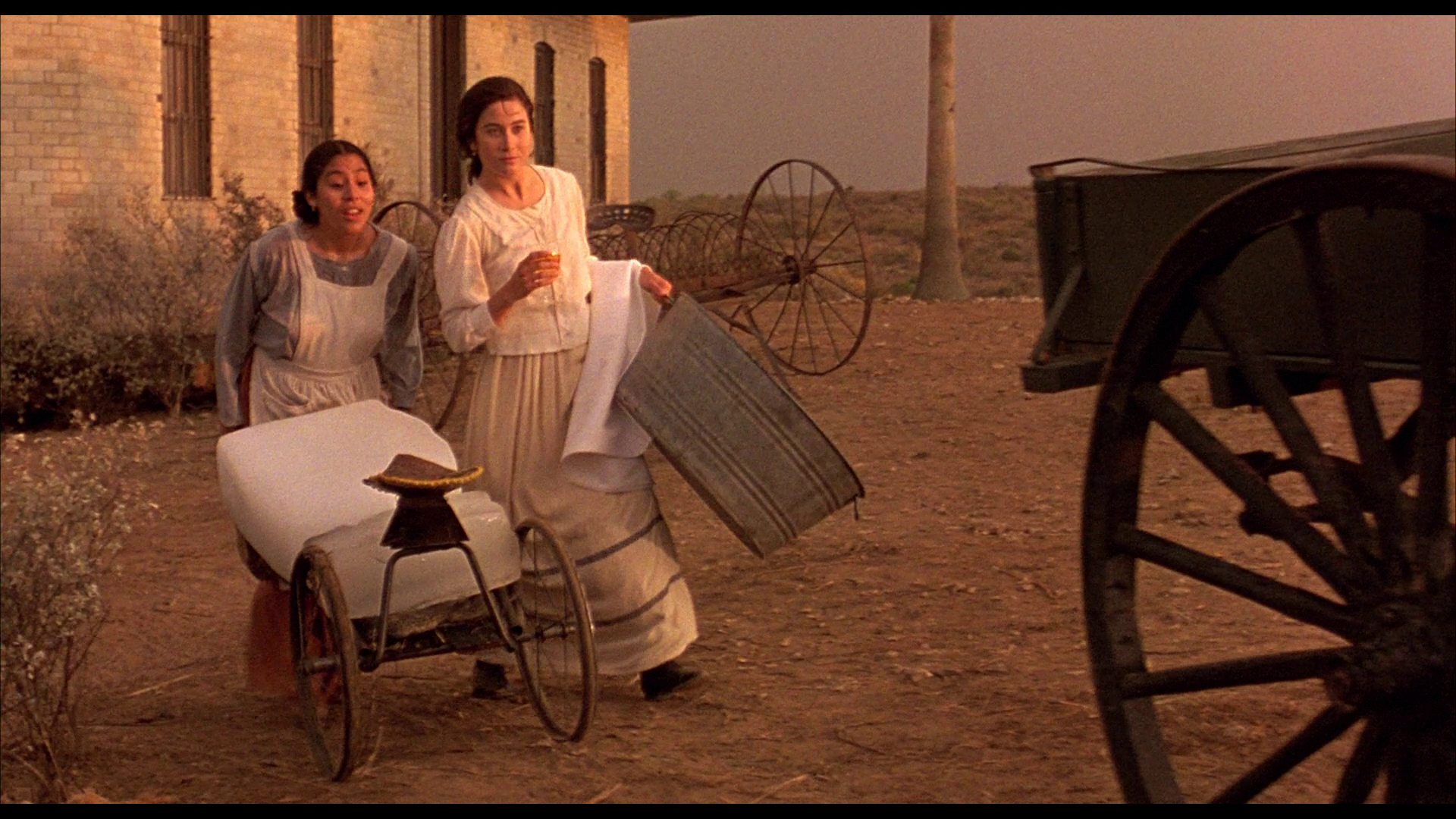
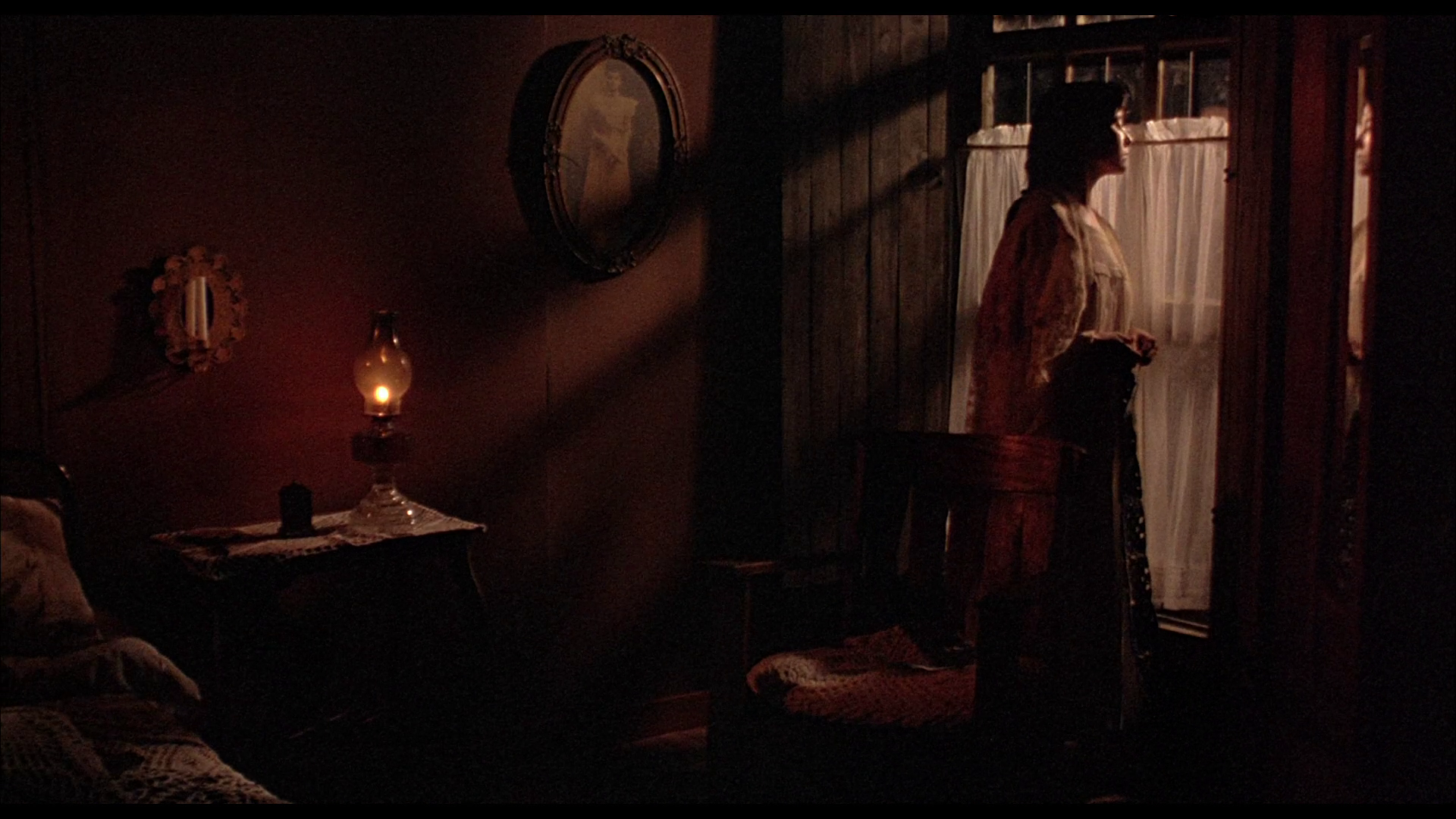
|


